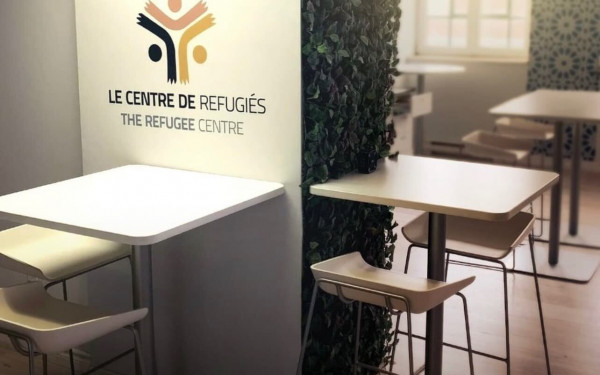Refugees and Me
The attacks that happened in Paris on Nov. 13 were an atrocity. The fact that people are capable of such violence is terrifying.
The media sure seems to know what to do. In the days since the attack, there’s been an increasingly loud chorus of talking heads chanting “SHUT THE BORDERS!” Sure it would be nice to help the refugees, they say, but we can’t risk another Paris. We need to put our security first.
Some respectable pundits have gone so far as to say that “the barbarians are already inside.” That’s pretty scary. We need to watch each other and report anything suspicious—our lives could depend on it.
So in the spirit of public safety, I have a potentially dangerous person who I want to report. She fits into all the categories that we’ve been told to watch out for.
The first major red flag is that this person came to Canada as a refugee. We’ve been told that refugees in general should be looked at suspiciously, so I started looking into her back-story a little more.
This person seems to not have put much effort into assimilating into Canadian culture—she still prefers to speak the language of her home country, and tends to associate exclusively with people from there. She considers herself a Canadian second, and identifies first with the country where she was born. She even brought her weird religious customs with her—this isn’t looking good.
Let’s make solidarity the defining aspect of our response, not fear and xenophobia.
Not only that, but she apparently receives some kind of payment from overseas every month—something to do with a war. I’m starting to get scared. Maybe she’s a terrorist and she’s planning the next attack. With everything we’ve been told, we can’t be sure. Maybe I should report her.
Maybe I should take matters into my own hands—except that would be ridiculous because I’m talking about my 91-year-old great grandmother. She fled the Ukraine in the 1930s, trying to get away from the terror of Stalin’s Soviet Union. Much of her family and community died in the Holodomor and the Great Purge. Escape was her only chance for survival, and she took it.
I wouldn’t be here if the Canadian state hadn’t allowed for her to come here all those years ago. And no, no one in my family has ever been accused of terrorism. As a matter of fact, none of the 263,000 refugees Canada has let into its borders in the past ten years have been accused of terrorism—not one.
But closing the borders to some of the most desperate people in the world, on the other hand, could definitely cause an uptick in terrorism. Not only would it cause serious resentment against the Canadian state, but it would trap people in the places where terrorist groups are most active, giving them thousands of potential new recruits. Those not forced to join would likely be killed.
Let’s be serious here. Yes, groups like Daesh are dangerous, but the people who are coming to Canada as refugees—and those who weren’t so lucky to be accepted into the very strict refugee program—are fleeing the same type of terror as we saw in Paris. Except in Syria, these types of attacks aren’t isolated events; they happen every day on a scale that we can’t imagine.
During the 12 years that the Nazis were in power in Germany, Canada accepted fewer than 5,000 Jewish refugees. Canadians were afraid that the refugees were Nazi spies. Many were turned away at the border, sent back to certain death in Europe. It was a tragedy, and something that we should never repeat.
Let’s make solidarity the defining aspect of our response, not fear and xenophobia. Let’s open the borders to all asylum-seekers. Let’s right the wrongs of our past, starting right now.


_600_832_s.png)

_600_375_90_s_c1.jpg)

_600_375_90_s_c1.jpg)
1_600_375_90_s_c1.jpg)